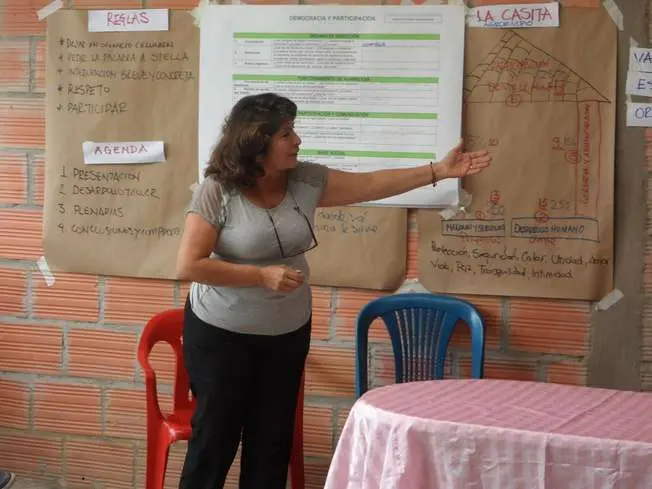We use cookies to help you navigate efficiently and perform certain functions. You will find detailed information about all cookies under each consent category below.
The cookies that are categorized as "Necessary" are stored on your browser as they are essential for enabling the basic functionalities of the site. ...
Necessary cookies are required to enable the basic features of this site, such as providing secure log-in or adjusting your consent preferences. These cookies do not store any personally identifiable data.
Read More Below
Read More Below
Read More Below

In the last year, a greater awareness of the need for DEI initiatives has exploded in the US. But for companies operating in the international development space, these initiatives can’t stop at the US border. One of DT Global’s core values is diversity and inclusion, and for us it’s important to actively integrate these concepts into both our offices at home and our programs around the world.
DT Global knows that often the best person to run a program is a local candidate who understands their country and its unique challenges. We’ve seen the power of working with local staff from marginalized ethnic groups and building their skills from a local grants manager to a Chief of Party or other senior staff. We’ve seen how a female COP can support and empower local female staff to imagine and work toward a future in leadership. These are the leaders our programs need, and the ones that we want to support.
At DT Global US we’re proud to have local, third-country national, or female COPs for more than half of our current or recently closed large-scale programs. Our recruitment, business development, home office project management, and field leadership staff have ideas on how we at DT Global are making these concrete shifts.
First, change can start at the proposal stage. For some proposals bidders are allowed to craft job descriptions and selection criteria for the key personnel and COPs they put forward. With flexibility, organizations can write criteria that allows for a wider and more diverse pool from which to select candidates. If proposals already have mandated selection criteria that makes it difficult to consider a wider range of applicants, organizations can also consider asking questions at the Question and Answer phase of proposal preparation with a specific emphasis on DEI to try to convince the donor to change the regulations. This could involve changing the minimum years of experience needed or educational requirements to accommodate a wider range of backgrounds.
At the program implementation stage, another tactic is to build sustainability and local ownership into the program through a COP mentorship initiative. “DT Global’s recently closed USAID Ethiopia Lowland Water, Sanitation, and Hygiene Activity had a high-level mentoring component to it,” says Michael Blair, DT Global Program Manager. “The program started with a US COP, who mentored our Ethiopian Deputy COP for about a year, before phasing out and having our Ethiopian DCOP move to COP and successfully lead the program until it ended.”

Donors often require prior leadership experience to take on COP or other management roles, so this kind of mentorship is a key part of creating a candidate pipeline so that local, TCN, female, ethnic minority, and other non-traditional candidates can rise into leadership roles. It’s important to remember that long-term training and mentorship of staff is what builds a pipeline, as well as making sure teams are hiring a diverse base of staff to join this pipeline.
Jill Morris, DT Global Chief of Party for the USAID Shejah Salam project in South Sudan, recommends making sure that the recruitment process for projects is equitable toward women and people from marginalized groups, including considering required qualifications and reviewing a wide range of candidate applications. Key steps for this include keeping minimum education requirements below university level (as many people did not have the opportunity to study at a university level due to conflict or finances); including mandatory language requirements, which favors people from underserved places as top candidates; including at least one woman in the short-list; and ensuring a diverse interview panel.
Ms. Morris is also in the process of creating an internship program for USAID Shejah Salam to help sow the seeds for equitable professional growth recent female graduates—helping to create a pipeline of diverse candidates for the future. DT Global has a long history of developing local leadership in South Sudan. “Under our USAID South Sudan Viable Support to Transition and Stability (VISTAS) project (2013-2019) we trained and mentored the local program staff to take over senior positions, and they are now the Regional Managers for our new USAID Shejeh Salam program,” says Ms. Morris.
None of these changes will create a fully diverse, equitable, and inclusive field program leadership bench immediately. But over time, we hope to nudge the field leadership pool in the right direction—one in which COPs hail from a range of race, class, gender, and country backgrounds.